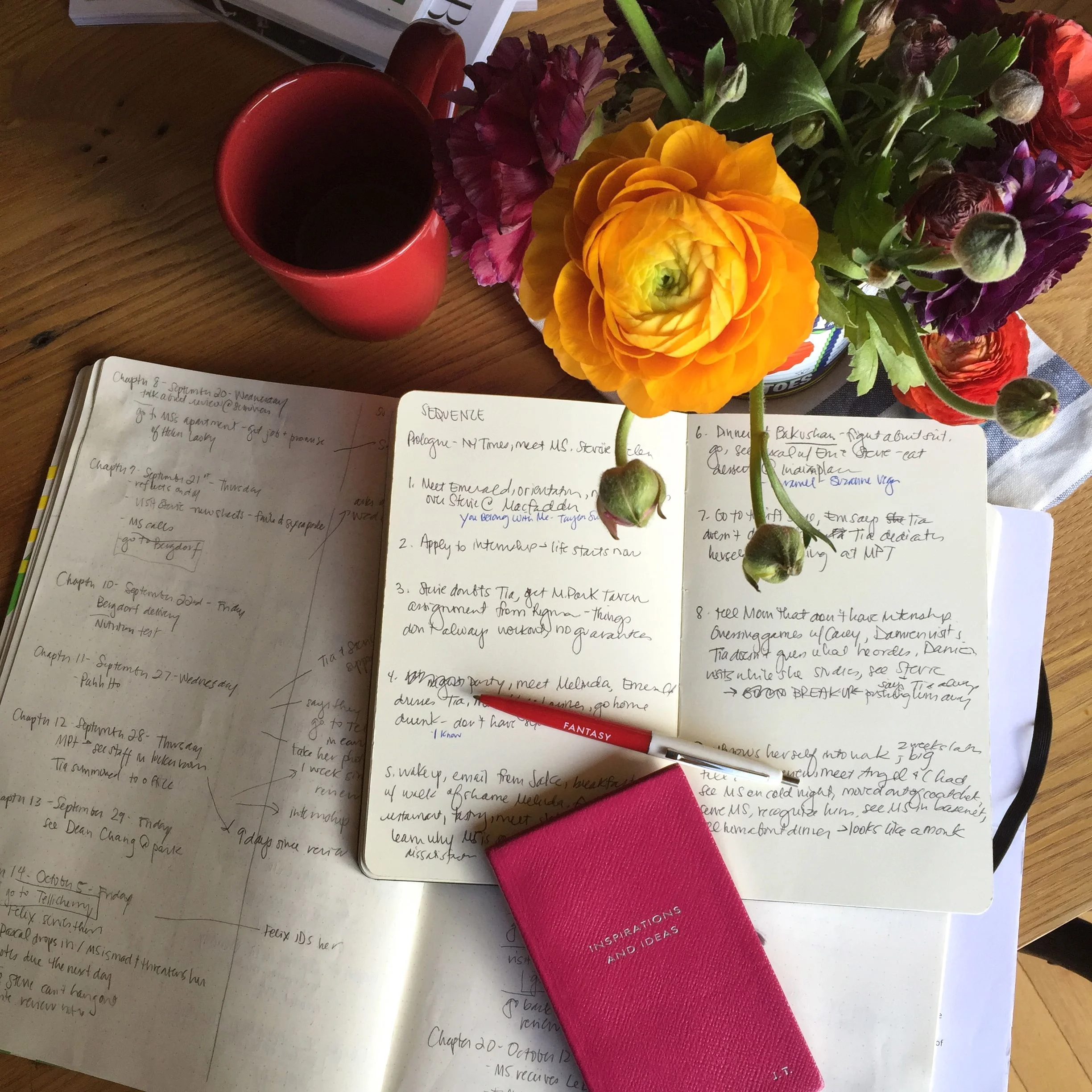When I tell people I wrote a book, they always say, “wasn’t that really hard?”
Book publishing is hard for a ton of different reasons. Rejection. Waiting. Motivation. Promotion. Life/work balance.
But writing the book? That was the easiest part for me -- not because I’m especially tapped into my muse, or I’ve a fount of stories and complex characters. It was easy because I project managed the hell out of it.
Of course, there will be some people who prefer a less structured approach. If that works for you -- go for it. But I’ve been in a situation where I’m 250 pages in, lost and despondent, torn about saving a thing that is ultimately beyond repair. It's not fun and, while not entirely a waste, can be extremely frustrating.
I’m the type of person who likes to have a plan. Who likes the feeling of checking off tasks on a to-do list. Who has a Google doc for every little thought process. If that’s how you roll (or how you want to roll), here are five ways you can fast-track your novel-writing process.
1) Develop a hook.
(Note: this applies more to commercial fiction, but I don’t think it hurts with literary fiction either)
Something digestible and compelling, in one sentence. Some examples (all pulled from the New York Times Book Review):
GONE GIRL: A woman disappears from her Missouri home on her fifth anniversary; is her bitter, oddly evasive husband a killer?
THE GIRL WITH THE DRAGON TATTOO: A hacker and a journalist investigate the disappearance of a Swedish heiress.
even 50 SHADES OF GREY: An inexperienced college student falls in love with a tortured man who has particular sexual tastes.
What you don’t want is something amorphous. Something like, “It’s a multi-generational saga that explores issues of love and loss” (okay... and how should I go about writing that?). I’m not saying you can’t have a nuanced, complex story… but in your head you should have a clear idea of what sets your book apart. Crystallize it and flesh it out on the page.
2) Know your characters inside out.
What do they look like, sound like? Where did they grow up, what's their favorite color? Remember: character drives action. If you have a shallow understanding of your characters, they will feel like pawns in a plot game, rather than real people with their own free will. The more you know your characters, the more you can just trust them to help you move the book forward.
3) Research… but not too much.
Your writing will get bogged down if you have to stop and read up on XYZ in the XXth century. So do it up front. Get inspired and confident. (Just don’t do so much that you never sit down to write the actual thing.)
4) Outline (within an inch of its life, if you can stomach it).
Does this take the spontaneity out of your writing? Sure. Does following a detailed outline make you feel like you’re on an assembly line? Perhaps. But, to me, having that lifeline and knowing what comes next is way more important than any notion of “artistic struggle”.
Make a broad outline -- Parts I, II and III. Maybe even map out your scenes on index cards or Scrivener. Think of your outline as your scaffolding. The more detailed your outline now, the less likely you’ll be stuck on the roof with no ladder.
I know this type of efficiency might be considered uncouth in the world of letters, but think of it this way: even the world's most innovative chefs prepare their mise en place. Prepping your ingredients and equipment beforehand helps you be more present in the moment of creation.
5) Write in one go. Edit in layers.
First, write your shitty rough draft. Set an aggressive quota for yourself. I did 500 words/day on weekdays and 1,000 words on weekends (while I was commuting 3+ hours/day to Connecticut). As you write, tag the parts that need further development. If it'll take you more than 5 minutes and doesn't dramatically impact the story, save it for later. Sideline B or C plots. Personally, I can only weave one story at a time so I concentrate on your main storyline first. I use track changes for small, site-specific things, and a notebook for more global things. Do not edit as you write.
When the draft is done, go back and work on different strands, one at a time. So, my task could be, "make Emerald more sympathetic", or "lend more scientific credibility to Michael's condition". I'll sweep the entire manuscript and make those changes. Then move to the next.
If I'm feeling less ambitious that day, I'll do the smaller site-specific changes -- things that don't require a full manuscript sweep. I think of site-specific changes as tasks on a to-do list -- bang them out, cross them off. Character development and plot refinement require more thought and I only do them when I'm in thinking/creation mode.
If you do all five of those things -- I believe -- you could finish a book in less than a year.
Now finding an agent? That's a whole other post...

